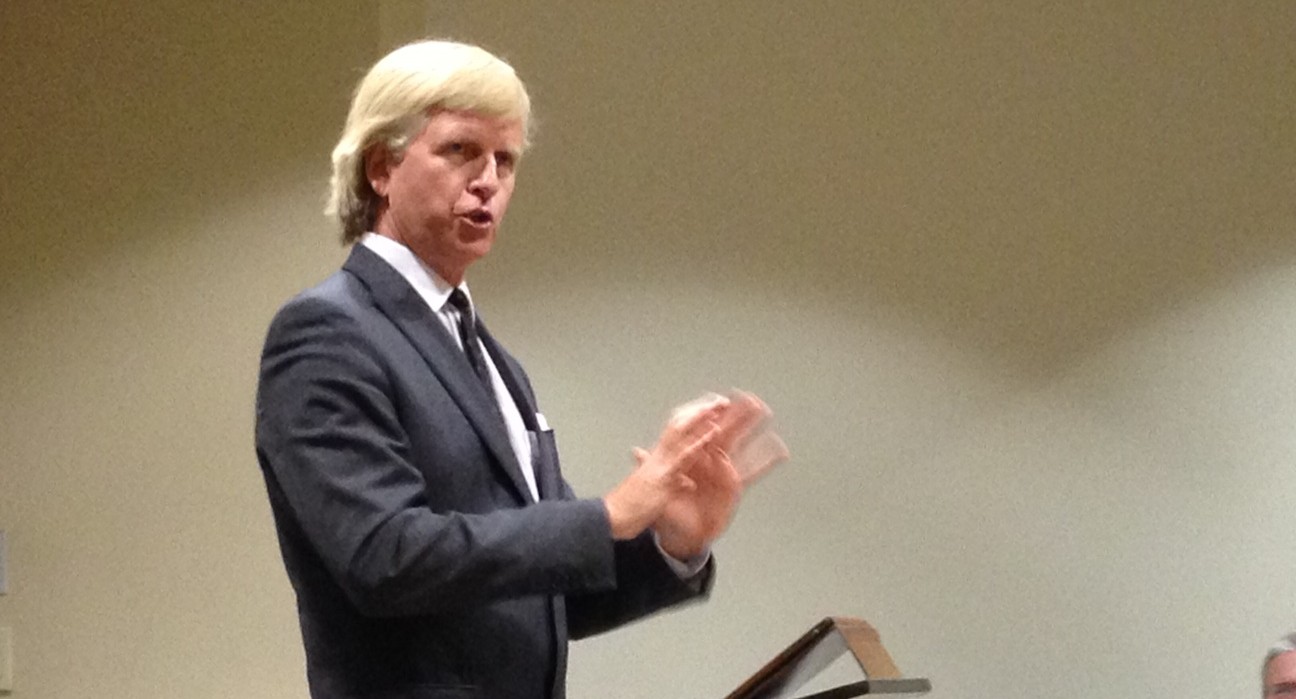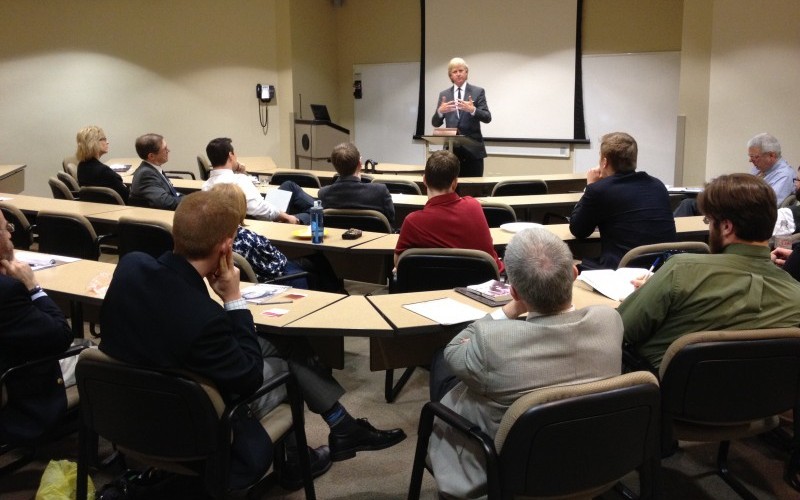New provost developing 'strategic plan' for King's academics
 New provost Dr. David Newton, who begins his position full-time Jan. 1, plans to help grow the student body and the departments at The King's College using his business background and professed commitment to liberal arts education.
New provost Dr. David Newton, who begins his position full-time Jan. 1, plans to help grow the student body and the departments at The King's College using his business background and professed commitment to liberal arts education.
While many goals of Newton's "strategic plan" will remain undisclosed until the spring semester, he said there will be "no big surprise what some of these are." One stated goal is achieving a total of 75 to 80 faculty when King's reaches 1000 students, happening as soon as 2015.
He credits the projected success of these goals to the accountability from an alumni base of 13,000 and the potential for innovative program initiatives resident in King's.
"Every organization– a business, a not-for-profit, any institution– must look at the kinds of assets it has to create something unique for the folks that it's targeting," he said.
The target audience for King's includes high school students seeking colleges. But with about 3000 colleges in the market, Newton believes TKC's key to remaining competitive is threefold, if unsurprising: its location, its faculty and its high-profile president, Dinesh D'Souza, who has produced numerous New York Times best-sellers.
The entrepreneurial finance professor coupled his talk of TKC's business model with that of his commitment to liberal arts education, addressing potential concerns that his business background would overshadow his ability to further philosophical and artistic curricula.
Having taught at Westmont College, Pepperdine University and the University of Massachusetts at Amherst, Newton is familiar with the politics of college faculty, who "like to have their domain" and display "lots of individuality."
He believes there is a bias in academia that "things like policy and politics and philosophy and sociology are these core liberal arts fields and as soon as you move over to science and medicine and business and finance, you lose that liberal arts perspective."
David Linamen (’12), who served on the Provost Search Committee, said, “It's hard to find a provost, because TKC’s majors are interrelated, and the provost needs expertise in all those areas.” Linamen noted that King’s also asks students to be involved in all the majors’ areas of study, to an extent.
Newton said the PPE, MCA and Business Management programs all have room for growth, especially as retention rates remain low in some departments. He added that the development of the Business Management program is a "no-brainer" in the atmosphere of Wall Street and the New York Stock Exchange.
Business Management is also the least popular major. Only about 20 percent of the student body chooses it.
Linamen believes Newton’s 22 years teaching at Westmont College put him “in a good position to preserve the connection between majors at King's.”
Tim Wainwright (’12), who also served on the Committee, said, “There's never a candidate who has experience that combines all majors.” Wainwright said he’d prefer Newton to have more background in philosophy, but he added that Newton has “lectured about the War on Terror and the economic crisis, among other topics—he’s not just a business guy.”
Nevertheless, Newton considers his business experience to be among the most important factors in his leadership ability. He has consulted for around 650 companies since 1982 and has implemented more than five-dozen strategic plans in the last 20 years.
“One of the greatest ways to integrate thinking is to do so in the context of businesses and ventures and organizations,” Newton said.
Vice President of Student Development Eric Bennett believes Newton's biggest challenge as provost will be transitioning to New York City, where he has never worked before. "Also, King's is a different sort of college, so he'll have to make that transition, but I believe he can do that," Bennett said.
Newton, a 1981 King's graduate during the school's Briarcliff Manor years, said he is aware of the mistakes the school made that led to its financial downfall in 1994. Essentially, he explained, King's overestimated the resources it had for growth.
"In a nutshell, the campus had this reputation as a huge potential goldmine because of the Briarcliff Manor building and sprawling property," he said. The money from the sale of the property was to be used for a new campus.
"On paper it looked like a good idea, but in terms of practical implementation it was botched terribly," he said. The main reason was that the funds from the property were insufficient to cover TKC's plans for expansion.
This failure created tension with alumni, he said, which was compounded by a general lack of information and transparency. But a few years later, the college reemerged with a new plan and repositioned to its urban center.
"Full hindsight for that plan is 2020," Newton said.


